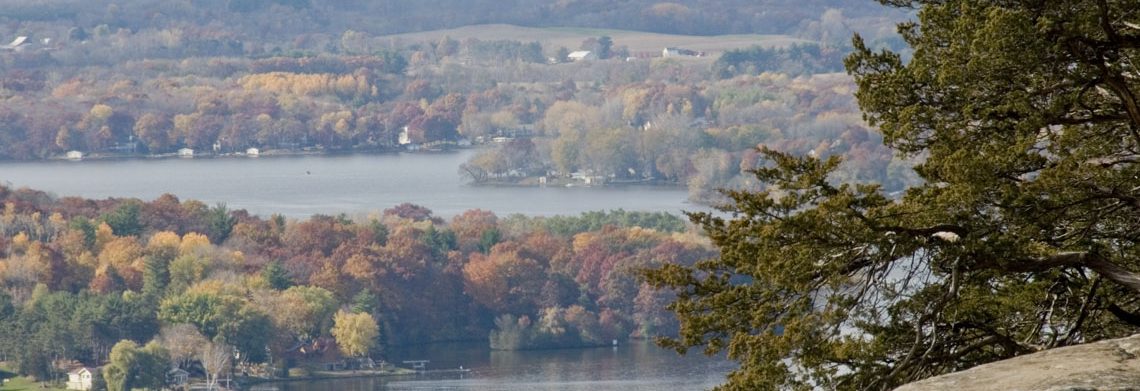Landowner Assistance
A variety of non-profit groups, as well as federal, state and local agencies understand the importance of active conservation practices on private lands. Here are programs that provide money or technical assistance to landowners for conservation work. Many require some level of matching funds from the landowner. These programs typically require a management or project plan, as well as a binding contract that ensures the proposed work is complete.
Agricultural Conservation Easement Program – Financial and technical assistance to help conserve agricultural lands and wetlands and their related benefits.
WDATCP Watershed Protection Grants – Local agricultural producer-led groups can qualify for grants to plan and implement watershed wide soil and water protection practices. Many of these groups work with local non-profit watershed protection groups to leverage their conservation efforts.
Blue Water Farms – Run by the Wisconsin River Alliance, this program provides farm operators with technical assistance to improve their water management practices. Initially focusing on dairy operations, the program is a way to certify water stewardship on agricultural operations in Wisconsin.
Similar to the LEED standard in construction comply with the AWS International Water Stewardship Standard developed and run by the Alliance for Water Stewardship (AWS)—a global membership-based organization that promotes the responsible use of freshwater, whose North American headquarters are in Milwaukee. Also like LEED, the standards focus on the management practices and processes rather than end products.
Whether or not you complete the certification, learning about the program may give you ideas for improvements for your farm operation.
Conservation Stewardship Program – This program is run by the National Conservation Resources Service (NRCS), a part of the United States Department of Agriculture (USDA). It is designed for landowners who are interested in stepping up their land conservation game by adopting enhanced conservation practices.
Enhancements are management activities that go above and beyond the minimum conservation practice standard requirements. They help the farmer, rancher or forest owner achieve a higher level of conservation.
Conservation Reserve Program – Farm Service Agency administers one of the largest conservation land set-aside programs out there. Whether you are an active farmer or rancher, or even a landowner who currently rents land for agricultural uses, this program should be among your first stops.
You will enter a long-term agreement with the feds. Like any contract, what you agree to up front is what you will be held to for the life of the contract. You have bargaining power before you sign, very little once the ink is dry. Make sure you understand your vision for your land and work with the FSA agent to create a management plan that meets your goals. Make sure you are confident that you can meet the commitments you make in the plan because the consequences can be very expensive.
Environmental Quality Incentives Program – NRCS has money for a half dozen areas. Funding is provided for conservation projects that go above and beyond activities required for participation in other programs, such as Conservation Reserve Program. Examples include creating a scrap pond for waterfowl use or removing invasive shrubs in a woodland that contains rare spring wildflowers.
Landowner Incentive Program (LIP) – Wisconsin Driftless Area (No Funding is Available)
Managed Forest Land – Wisconsin woodland owners get property tax relief and technical assistance in exchange creating and implementing an approved forest management plan.
Deer Management Assistance Program (DMAP) – The Wisconsin DNR provided technical assistance for landowners, whether you own five acres or five thousand acres. Their resources include publications, workshops, and help developing land management plans. While the focus of DMAP is improving habitat for deer, it broader goal is to help you attract and support a wide range of both game and non-game species.
North American Wetlands Conservation Act: Small Grants Program – USFWS matching funds for wetlands restoration projects up to $100,000.
Partners for Fish and Wildlife – USFWS funds projects on private land, especially those near National Wildlife Areas and federal waterfowl production areas.
Wisconsin
4511 Helgesen Drive
Madison, WI 53718-6747
608-221-1206
wisconsinplo@fws.gov
Funds are provided for prairie and wetland, as well as stream and riparian restoration. Projects are often chosen which include multiple partners such as Pheasants Forever or the Nature Conservancy.
Wetland Reserve Enhancement Partnership – Financial and technical assistance available to help eligible conservation partners leverage local resources to voluntarily protect, restore and enhance critical wetlands on private and tribal agricultural land nationwide.
